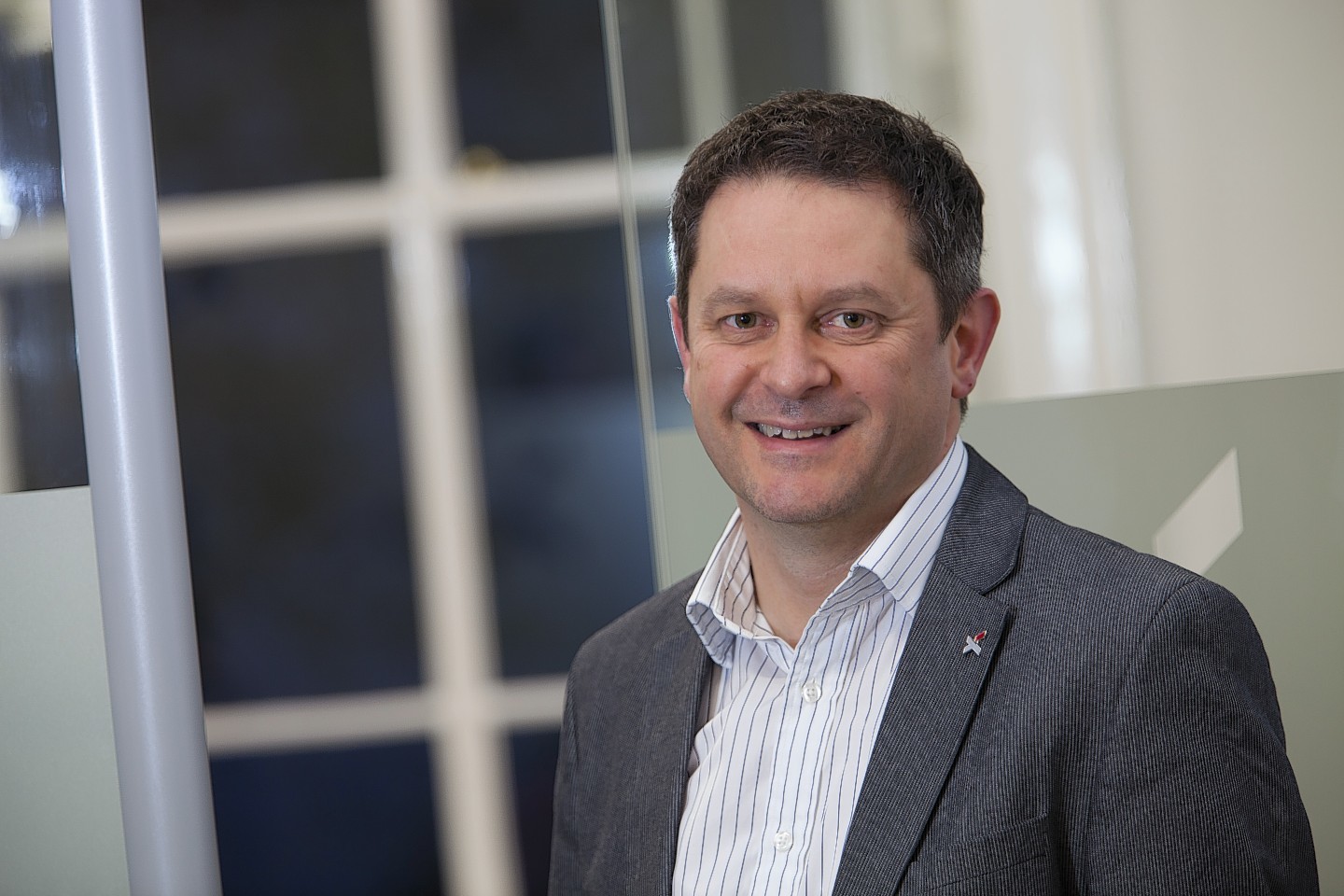This year marks a decade since Steve Swindell and his business partner Colin Manson set up their energy consultancy Xodus in Aberdeen, writes Erikka Askeland.
The joke behind Xodus’ company’s name stems from the fact Mr Swindell and Mr Manson had been working at Genesis Oil and Gas, owned by French oil services giant Technip, before setting up on their own.
Although now, the Biblical jest is a bit old hat.
“At the time it was quite cheeky, we have moved on since then,” Mr Swindell says. “But it has served us well.”
Since then the company, which specialises in subsea integration in both the oil and gas and marine renewables industries, has grown to employ around 750 people, with offices around the globe including Houston, Lagos, The Hague, Oslo and Dubai.
Mr Swindell and part of the Aberdeen-based team have also recently moved into a new “overflow” office, where his own office enjoys a bird’s eye view of Union Street through the giant glass panels of a granite turret. The company also maintains its headquarters around the corner on Huntly Street.
Eighteen months ago, Japanese engineering conglomerate Chiyoda Corporation took a majority stake in the firm in a deal thought to be worth £66million.
Mr Swindell says the partnership has been beneficial for both firms. For Xodus, the Japanese group offers a “capital alliance” which still allows his firm to act independently. For the Yokohama-based group, the deal offers them access to expertise.
“Japan is an energy-constrained country. They have relied on nuclear energy for years, which is now under review because of the big disaster,” he says. “They have hydrocarbon reserves offshore Japan so they decided to get subsea capability in country to access them.
“They set the challenge to their engineering companies to get this experience.”
He said this was the Japanese firm’s logic when it drew up a 75-strong long-list of potential acquisitions before doing the deal with Xodus.
A South African national, the chemical engineer says he found himself out of a job in the wake of political and industrial upheaval in his native land, and he decided to go skiing. He ended up in Aberdeen about 25 years ago – but jokes he’s still not much of a skier.
“I never went back home. I still haven’t done a lot of skiing but I did learn how to do it.”
He seems comparatively relaxed about the crashing oil price, although he admits it will undoubtedly have an impact on the business this year.
Last year the firm suffered pre-tax losses of £10million while turnover grew to almost by a quarter to £75.9million.
A function of the company’s expansion, Mr Swindell said the company’s UK business was profitable in 2013. But this year the firm may yet have to face cutting overheads – and some jobs. But he insists that the firm is still taking a business-as usual-approach. For example, he says the firm will continue with its graduate training scheme.
“The problem is for us people are our business. We don’t like to get rid of them in a hurry.
“We’ve had good experience in downturns in the past, just changing the work people do – addressing a different problem.
“We are good at that. We survived the 2009 downturn and we expect to do the same this time.
“We keep investing in people – we will still keep taking graduates on this year. We don’t stop taking graduates just because it is a bad year because we know we’ll need them in two or three years’ time.”
On a day when Labour ministers were in Aberdeen for a “day of action” on falling oil and gas prices, Mr Swindell the government could consider a range of options to help North Sea firms.
“They can provide tax breaks for the oil companies to explore more. But from our side, the best thing they could do for the services companies is be clever about people. They could pay for half their graduate costs, so firms are not tempted to cut them.”
